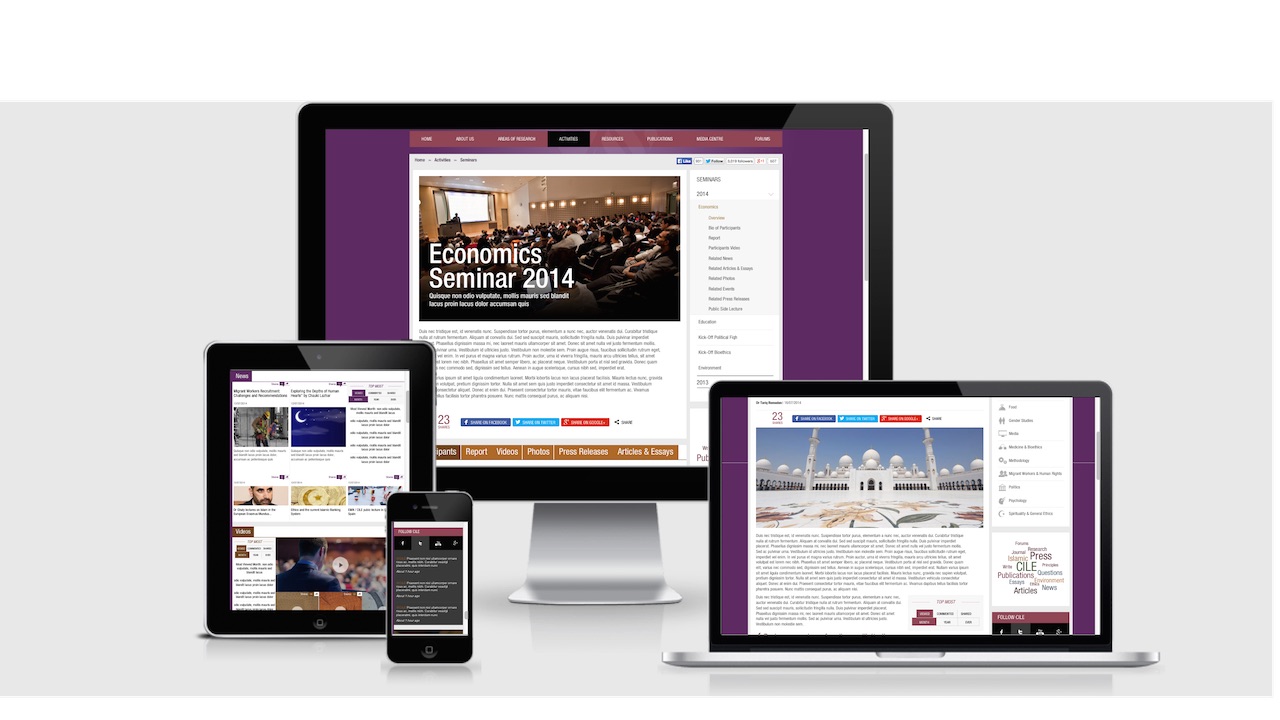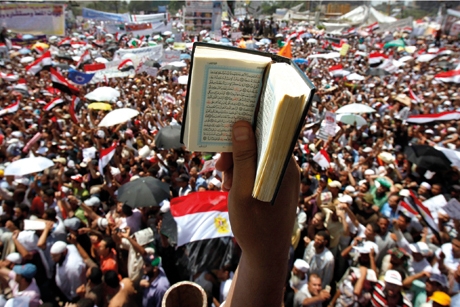To live is to suffer, said Schopenhauer and Nietzsche, who were both steeped in the teachings of Buddhism. To live is to love, asserted St Augustine, recalling the teachings of Christianity and the monotheistic religions. Aristotle’s syllogism is unanswerable: if to live is to suffer, and if to live is to love, then to love is to suffer. There is also another universal truth that we cannot escape, even on the remotest island on the planet: if love goes there with us, suffering inevitably follows us there. The most beautiful dispositions of the heart inevitably have their dark, sad side, and can sometimes be especially painful. Being lucid and developing our memories is fine, but it is also true to say that the things we forget, our mental blanks and the things we are not aware of are forms of protection: there is no other way to bear our humanity. Unless we are to lose our minds, losing our memory is sometimes good for us. When we look into the eyes of the man or woman we love or glance at our parents, children or friends, how can we bear the truth of life without flinching: one day, we will have to separate, leave or perhaps divorce, or perhaps go into exile or disown one another. And whatever happens, and without the shadow of a doubt, we will die. In any case, we live between heaven and earth and the Meursault of Camus’s The Outsider is right: ‘There is no way out.’ Then we should ‘divert ourselves’ in Pascal’s sense of the term: forget, think about something else, or avoid thinking. That is the wisest and most intelligent course. Cassius ‘thinks too much’, said Shakespeare’s Julius Caesar, who wanted to have about him ‘fat, sleek-headed men and such as sleep nights’. Helicon, the advisor to Camus’s Caligula adds, ‘You know full well that I never think. I am far too intelligent for that.’ The alternative is to love in order not to think. To love is to suffer … to love is to forget. Hecate has two faces. By night she is the moon, and by day she is the sun. The contradictions of life are inextricable.
We sometimes use the same words, but we do not say the same things. The path or way (tao) that leads to enlightenment and regeneration in Taoism allows us to reach a higher level of fulfilment through work on oneself, on the totality of one’s being. We are a long way from Greek dualism and the categories of the West. Taoism teaches us to use self-control, breathing and sexuality to rediscover within our own bodies the cosmic energy that is the essence of the Whole, and to blend and become as one with it. There is no boundary between the profane and the sacred, and love therefore does not mean forgetting, but going beyond contingencies, finding eternity and therefore the transcendence of the suffering that is bound up with death. The earlier and later influences of Buddhism give these teachings of Taoism many different nuances of meaning, depending on whether or not we believe in the cycles of reincarnation (samsara) and the liberation of Nirvana. Despite their diversity, the one thing these traditions have in common is their rejection of dualism. The stages that lead from body to mind –liberation, compassion and detachment –involve a process of asceticism. The energy we require and the goal we seek is a love that has been freed from all instinctual and emotional dependency and fuses with the vital energy of the macrocosm. Everything can be part of the same impetus, the same inspiration: eating, breathing and caring for our bodies, being and our inner life are mystical, sacred acts that allow us to reach an absolute by transcending the self through Love-Compassion. It is the love that is veiled and imprisoned, or the love we undergo, that causes us to suffer, that makes us forget or that momentarily diverts us. This is a love that is ‘corporealized’without a mind, or that is ‘sentimentalized’ and without a soul. It is a ‘natural’ love, but it is incomplete and handicapped. We must know the straight but demanding path that leads from the body to breath[ma1] , from breath to the soul, and from the soul to the Whole. Dualism is a trap, and individuation is a prison. Our sufferings inevitably increase when we are trapped and in prison. To go back to the categories we used earlier, we might say that we have to make a distinction between the love-emotion we undergo (and which can take possession of us) and the love-spirituality that we master, that we choose and that allows us to reach out of ourselves and find well-being. Love-spirituality is said to be a more lucid form of asceticism. Some, like Chaung Tzu, who was one of the masters of Taoism, took the view that we must ‘empty ourselves’ and free ourselves from our intentions and from language, whilst others apparently took the opposite view (as in some of Confucianism’s teachings), and argued that we should seek ‘fullness’ without denying our intentions. On the contrary, the latter group argues, we should direct them by developing through exercise, an attitude and actions that can both transcend and liberate.
When St Augustine says ‘Love and do as thou wilt’, he is not thinking of the teachings of one of the currents within Taoism which, like Chaung Tzu, calls upon us to rediscover the Path, natural lightness, the absence of will, letting go or the ‘fullness of the void’. The words are similar but the demands and finalities are quite different. We have to work on ourselves, and self-control and transcendence are certainly essential but, given his belief in the duality of being and ethic[ma2] s, St Augustine is referring to Christian ethics: experiencing love in Jesus means being freed from sin, and overcoming our natural corporality so as to find the spirit or soul in its purity and proximity to the divine. Such love is very demanding and acquires its status because it does not deny any of its human attributes: the body, its instincts and its temptations are products of original sin. If we are lucid from the outset, we can be free and ‘do as we will’ in the Love of Christ and God. The Jewish and Muslim traditions are similar in terms of their teachings about love. They do not have the same relationship with sin and salvation through Christ as Christianity, but their basic teachings are the same: love is an indispensable element in the relationship with the One, as are the teaching, effort and personal discipline required to transform it, spiritualize it and to experience the proximity of the divine.
‘Love is the key,’ said the young poet Rimbaud, who eventually chose to go alone into exile. The poet Nerval, who wrote in the same century, was afraid that he had chosen the wrong love (the creature Aurélia rather than the Creator), and eventually committed suicide. The literatures of the world are full of these hopes, contradictions and pains. Indeed, they are what sustain them. Shakespeare uses drama to express the truths of what it means to be human. Juliet is the archetype of love, of the happiness that causes us pain. Carried away by love, she realizes that Romeo is both the man she loves and the enemy: her love is impossible. Shakespeare’s formula then reveals the secret: ‘Love is a smoke raised with the fume of sighs; being purg’d, a fire sparkling in lovers’ eyes; being vex’d, a sea nourished with lovers’ tears’. The tormented Hamlet laughs and cries as he tries to find an answer to the agonizing question ‘to be or not to be’ in the eyes and love of Ophelia. Her death by drowning sends him back to his existential questions: the absence of love is, in a strange way, an invitation to commit suicide. Tension, contradiction, pain and death appear to be the food of love. They are also the salt of love.
All spiritualities and religions seek reconciliation and harmony, and try to overcome the intrinsic and basic tension within Man: the tension between love and suffering. That tension is another way of expressing the hope that we will find the freedom that lies beyond the realities of dependency. All spiritualities and religions teach us the same thing: if we seek the self-confidence and well-being that lies at the end of the initiatory path, we must begin by learning to take heed of ourselves. Whilst the feelings we instantly feel in our hearts make love seem simple and obvious, we must still take time to study that love and those hearts. We must learn to love, and to imbue ourselves with the forms of ‘the key’ … and of the doors it fits.
——————————————————————————–
Excerpt from The Quest for Meaning, Chapter 14










This text is very profound and contributes thus to enrich my conception of love. But as far as the excerpt is concerned -I did not read the english version-, is it from chapter 13 or 14??? I would like to know.
Thanks!
Peace to all,
About a year and half ago I began to read articles from a Muslim Philosopher named Tariq Ramadan. I had first heard of Mr. Ramadan when he was banned from entering the country of birth, the United States. As I began to read more of his articles I realized I needed to read his books. In this last year I have read everything that has been posted on this website and every Tariq Ramadan book I could get my hands on. With that said, this by far is the best article I have read in my 27 years of life. This article makes me wish my copy of The Quest for Meaning would arrive sooner. Thank you for opening our hearts and minds, not only through Islamic dialogue but through the dialogue of all humans, LOVE.
Peace,
Chance
Thank you for posting this beautiful extract from your new book.
A thought: If the opposite of love is hate then maybe « the key » is to find ways to eradicate hate rather than to pursue love.
May God help us to bring harmony to this world.
Mr. Ramadan, you talk and write a lot about the inner life and emotions, and how to master negative emotions. Now I was thinking, for you is this about ‘bearing it with grace’ and not letting emotions guide decisions and actions, or do you think there is a way to turn emotions off -to become stoic. If the latter, how to achieve this?
I certainly appreciate Mr Ramadans veiws on Islam in the modern day world. It is refreshing and comforting to know a student of Islam is arriving at ‘fresh ‘ conclusions in Islam based on a return to classic Islam. In reading this article I cant help but think of the Dalai Lama’s book ‘An Open Heart: practiceing compassion in everyday life’ which takes this article a step further from the theoretical to the practical. The Dalai Lama gives practical exercises in increasing compassion and discusses suffering from a Buddist perspective which ends up being an interfaith perspective really as the ideology he talks about really meshes well with Mr Ramadan’s writings.
I really love that we can find commonality in so many faiths if we look for them in the essential teachings such as love for God and love for all fellow humans and caring for nature, God’s creation.
Why do you love me?
Why do you love me so?
What do I hold?
What do I owe?
It cannot be because I am me
There is so much hidden
From heart and eye
So much hidden
In these deep brown eyes
But truth be told
There are no lies
Just moments, days, left untold
That are better kept
In winter’s hold
Better kept
Where they can do no harm
Except to the soul
That feels their chill
And prays that despite
You will love me still
Is a life without love worth living?